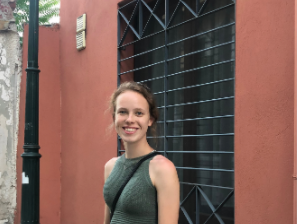Open, compassionate dialogue fostered by Women’s Center director
December 7, 2018
In her two years as the director of the Flora Stone Mather Center for Women, or the Women’s Resource Center (WRC), Lisa Nielson, Ph.D., has worked to promote an environment of inclusion, respect and collaboration across campus.
The WRC is a campus-wide resource for students, faculty and staff at Case Western Reserve University. The Center strives for gender equity through advocacy, education outreach with programs like Sexpo and partnerships with clubs and organizations including Women in Science and Engineering Roundtable, Planned Parenthood and the Cleveland Rape Crisis Center. Additionally, the WRC provides confidentiality as well as mandated reporting for events requiring these services.
The Center has affectionately been considered a place for all people to hang out, promoting the four C’s they always have readily available: coffee, candy, condoms and camaraderie.
Notably, this spring, the WRC will co-sponsor the showing of “Mankiller” with the Ellipsis Institute for Women of Color in the Academy, which strives to create space for women of color in all roles. “Mankiller” is a film celebrating Wilma Mankiller, the first woman to be elected as the Cherokee Nation’s principal chief.
Nielson embodies the ideals of the WRC as she attempts to live and model the meaning of empowerment for all women and people. “What can we do to have more dialogue?” she asked. “How do we make room for everyone to be [included] and heard?”
Throughout her term, the director has, and continues to, amplify the voices of the unseen, unheard and ignored.
Nielson acknowledges the trying times of society today and suggests solace can be found in the prioritization of listening and learning.
“Listen to one another,” she said, emphasizing the need to engage in dialogue with people, even when it is challenging. Additionally, she encourages people to “learn [their] history.”
As a Seminar Approach to General Education and Scholarship professor and Anisfield Wolf Fellow, Nielson has often been prompted with the conundrum of how to solve America’s many social ills. In response, she encourages studying history to understand why our “racist, sexist society” is the way it is. She challenges her students to recognize their unconscious biases and find a way to have conversations with people who have very different political, economic, social or scholarly opinions.
Nielson also wonders how people can be “[taught] with compassion,” asserting that humans will inevitably offend others and that people often say things with unintended meanings. Politely and respectfully addressing a comment or joke is one way to “give us [a] gentle check [and] learn something,” she said.
Nielson promotes these ideas by encouraging listening and being gentle with one another and oneself.
Additionally, her efforts to promote greater respect, understanding and “thoughtful listening” among people extend to trying new things. Nielson reiterated the number of opportunities present on campus for students, faculty and staff to broaden their horizons.
“If you’re an engineering student and you love to write, go to a poetry reading,” she encouraged. “Broaden your minds,” she calls on the CWRU community. “When we are afraid to explore, we automatically limit ourselves.”
While acknowledging the difficulty, Nielson promoted the need to have open and non-judgmental dialogue while denouncing hate speech. “Learning how to have these conversations and how to engage with people who are absolutely different is what college is about,” she said.
Recognizing that the readily-available supply of information can be overwhelming, Nielson suggests that the community just “dive in.” She noted that while people have different interests, there is great importance to reading different perspectives and opinions. Ignoring one angle, she said, results in the loss of the greater, holistic picture.
The disciplines of the WRC are “not just for [you and me],” said Nielson. Rather, “everyone needs to be concerned about [the struggles for human appreciation, respect and equity].” She stressed that “if we do not start caring—all of us—about the issues that touch us all, we are not going to get anywhere.”
The WRC encourages all students, faculty and staff to unpack identity issues, unconscious biases and explore personal values and then live by them. While actions may seem small, they can have a lasting effect on the world and each individual personally.
As embodied by Director Nielson, the WRC strives to empower all women, promote gender equity and be welcoming to people of all gender identities. After all, as Nielson said, “At the end of the day, we will always [have] something in common [with one another]; maybe it is just breathing oxygen, but that still exists, and with that, [we] can move mountains.”



